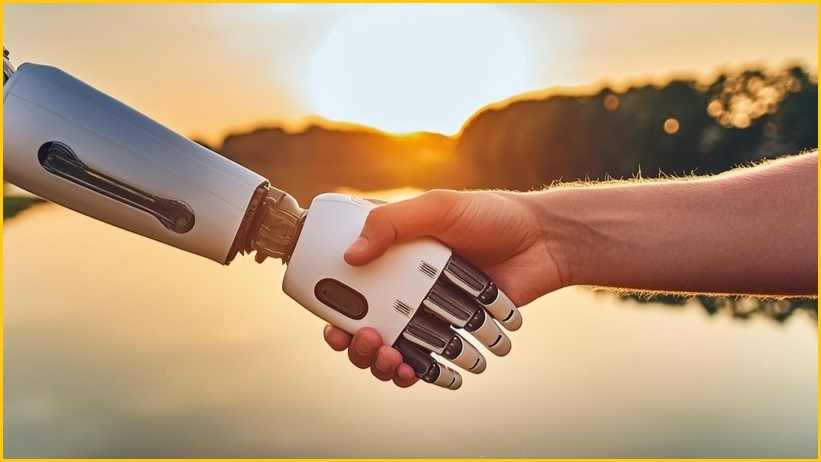Artificial intelligence has the potential to “reignite” stalling human development around the world, with global optimism around its potential to create employment and opportunities overriding fears of job losses, according to a new UN report.
The UN Development Programme’s 2025 Human Development Report found that in the last year there was the smallest increase in global human development since 1990, excluding the COVID-19 pandemic years.
It found that, if harnessed efficiently and ethically, artificial intelligence has the potential to accelerate global development and equality, and that there is optimism around the world about its positive impact on jobs.
This is far from the usual narrative around AI, which centres on job losses and the automation of roles previously undertaken by humans.
“Amidst this global turmoil, we must urgently explore new ways to drive development,” UN Development Programme administrator Achim Steiner said.
“As AI continues its rapid advance across so many aspects of our lives, we should consider its potential for development.
“New capabilities are emerging almost daily, and while AI is no panacea, the choices we make hold the potential to reignite human development and open new pathways and possibilities.”
Hopes for positive AI
Around the world, 60 per cent of people are hopeful that AI will have a positive impact on employment, including by the creation of jobs and opportunities that don’t currently exist, a survey conducted for the report found.
This is compared to just 13 per cent of respondents who said they fear that AI will lead to job losses.
In countries with lower human development scores, 70 per cent of survey respondents said AI is likely to increase their productivity, while two-thirds expect to use the technology in education, health or work in the next year.
Whether this positivity and the opportunities on offer are realised will depend on whether a human-centred approach to AI is adopted, UN Development Programme’s Human Development Report Office director Pedro Conceicao said.
“The choices we make in the coming years will define the legacy of this technology transition for human development,” Conceicao said.
“With the right policies and focus on people, AI can be a crucial bridge to new knowledge, skills and ideas that can empower everyone from farmers to small business owners.”
AI could serve to exacerbate global inequality or help to close it, Steiner said.
“As AI surges forward, human development stalls,” he said.
“We are at a crossroads: while AI promises to redefine our future, it also risks deepening the divides of a world already off balance.
“Are we on the verge of an AI-powered renaissance – or sleepwalking into a future ruled by inequality and eroding freedoms?
“If we fail to address the injustices and divides that persist today, AI will only entrench them further.
“But if we invest in human capabilities and commit to greater equity, AI can magnify the best of what humanity can achieve.”
On the other hand, AI is coming for your job
The fear of the negative impact of AI on jobs, especially in the tech sector, has been prevalent in recent months.
The CEO of online freelancer marketplace Fiverr, Micha Kaufman, this week warned all his employees that AI is “coming for your jobs” – and his own as well.
“This is a wake-up call,” Kaufman said in the email to all Fiverr staff which he also posted on social media
“It does not matter if you are a programmer, designer, product manager, data scientist, lawyer, customer support rep, salesperson or a finance person – AI is coming for you.
“You must understand that what was once considered ‘easy tasks’ will no longer exist; what was considered ‘hard tasks’ will be the new easy, and what was considered ‘impossible tasks’ will be the new hard.
“If you do not become an exceptional talent at what you do, a master, you will face the need for a career change in a matter of months.”
And in Australia, a survey recently found that Australians are distrustful and scared of AI tools.
The survey found that nearly a third of respondents said the benefits of AI use outweigh the risks, far less than much of the rest of the world.
Just over half of Australian respondents are currently realising the benefits of AI compared to nearly three-quarters globally, the survey found.
Part of this appears to be down to poor previous experiences with the technology, with more than a third of respondents saying they had personally experienced or observed negative outcomes, such as inaccuracy, misinformation and manipulation.
While there are hopes AI may improve productivity and create new jobs, a number of tech companies in recent months have adopted an AI-first approach involving restrictions on hiring or job cuts.
Earlier this month Duolingo said that its teams are not allowed to hire new team members unless they can prove this role cannot be done with automation as part of a new AI-first mandate.










